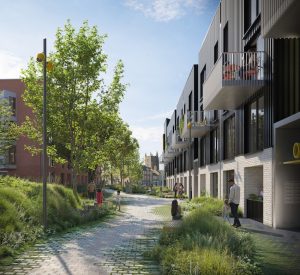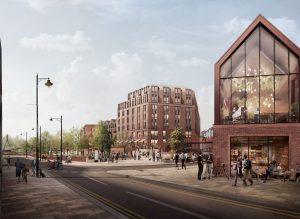Birmingham to see strongest house price growth over next five years

Birmingham is forecast to see the strongest house price and rental value growth over the next five years, compared to the rest of UK cities, with year on year growth expected from 2022-2025.
That’s according to JLL’s UK Residential Forecast Report, ‘Home is… for everything’, which says UK house prices are forecast to dip towards the end of 2021 in the face of a number of headwinds, before growing strongly again from 2022 onwards.
Going into 2021, house prices will continue their current strong growth across the UK until the Stamp Duty holiday is removed, the report predicts.
For Birmingham house prices and rental values will remain flat in 2021 with house prices going up 4% and rental value increasing by 3.5% in 2022.
The city is also seeing a growing housing shortfall. However, Birmingham City Council is seeking to accelerate the regeneration of council owned assets to deliver new mixed tenure housing solutions including private sale, build to rent, student accommodation and later living solutions.
For the wider UK, house prices will begin to fall finishing 2021 at -1.5% on the back of headwinds such as rising unemployment, lost GDP growth and falling housing affordability. However, the housing market will recover quickly and steadily from 2022 with a COVID-19 vaccine expected to be widely in circulation by then.
While the global economy is expected to rebound in 2021, as widely available medical advancements make it possible for social distancing to fully relax by the second half of the year, housing transactions are expected to remain well below the pre-COVID anticipated level of 1.25m.
In total, it is forecast that there will be 700,000 less transactions between 2020 and 2022 than the pre-pandemic predictions with the market dominated by first time buyers using Help to Buy and equity-rich families looking for additional space.
Nick Whitten, JLL head of UK living research, says: “The global pandemic has left the housing market facing some headwinds in the short term, which will put some downward pressure on house prices. However, it is also accelerating a new trend in which our homes are becoming the centre of our lives once again. We may be changing the way we work and the way we play, but the one certainty remains – that we need places to live – and this is something that is going to have a huge effect on the market as buyers, and renters alike, change their living requirements.”
Rental values across the UK are expected to fall by 1% in 2021 with the removal of the initial Furlough scheme having a dipropionate effect on lower-middle income customer-facing workers – the majority of whom are in private rental accommodation. However, by 2025 rents will increase by 10% due to population changes, such as shrinking family size, longer life expectancy and demand for flexible, urban living space supporting the growth of renting.
Private housing starts are expected to be well below the pre-COVID predictions of circa 200,000 starts per year. JLL predicts that it will take some time for housebuilders to become confident enough to step up their activity with circa 165,000 lost starts between 2020 and 2024, compared with pre-COVID forecasts.









